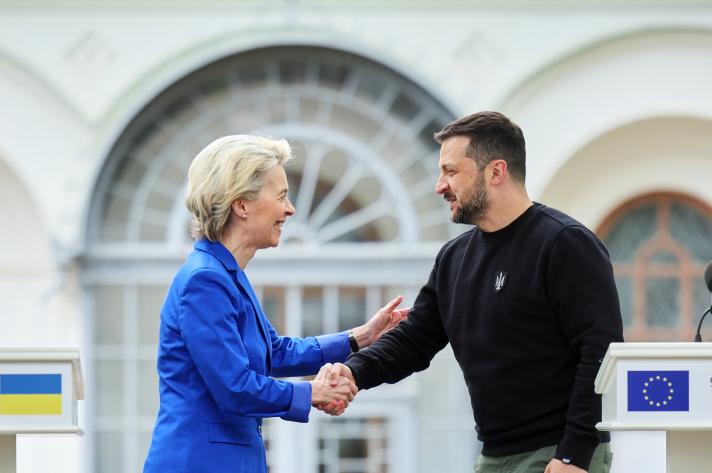News Flash

BRUSSELS, Belgium, Nov 17, 2025 (BSS/AFP) - Ukraine needs more than 70
billion euro ($81 billion) in extra financial assistance to defend itself and
keep the government running in 2026 as Russia's war drags on, the EU said
Monday.
The European Commission spelt out Kyiv's needs in a paper circulated to
member states as the 27-nation bloc debates whether to use frozen Russian
assets to fund a new loan to plug Ukraine's looming budget black holes.
"The scale of Ukraine's financing gap is significant," commission chief
Ursula von der Leyen wrote in a letter accompanying the paper seen by AFP,
before outlining financing options and urging states to "rapidly" choose a
way forward.
Citing International Monetary Fund projections based on Russia's war ending
by the end of next year, Brussels said Kyiv's assistance needs would reach
over 70 billion euros in 2026 and 64 billion in 2027.
Ukraine can independently provide for only about half of its military needs
for next year - worth a total of 103 billion euro -- the paper said.
That leaves 52 billion euros in defence support and another 20 billion in
macro-financial assistance -- for a total of 72 billion euros -- for allies
to foot, the commission wrote.
The task of finding the money falls largely on the EU as, under President
Donald Trump, the United States has cut off funding to Ukraine.
The commission has put forward a plan to use frozen Russian central bank
assets to generate a 140-billion-euro "reparations loan" for Ukraine.
But that has faced opposition from Belgium -- where the bulk of the money is
held -- which fears it could face legal reprisals from Moscow.
- Avoid 'paralysis' -
In the paper the EU executive listed two alternative options.
The first is for member states to underwrite grants to Ukraine and use wiggle
room in the bloc's central budget to back those, while the second is to
jointly borrow the money.
"Clearly, there are no easy options. But this reflects both the scale of the
challenge and the historic nature of the responsibilities before Europe at
this critical juncture for Ukraine," the paper read.
"Europe cannot afford paralysis, either by hesitation or by the search for
perfect or simple solutions which do not exist."
While the document did not state a preference, von der Leyen said last week
that using frozen Russian assets was the "most effective way" to finance
Ukraine.
EU officials and diplomats have also warned that the alternative plans would
incur greater costs for countries at a time when national budgets are under
strain.
The commission is pushing for an agreement to be reached when EU leaders meet
in December.
In a bid to assuage Belgian reticence, von der Leyen held talks with the
country's Prime Minister Bart De Wever last week.